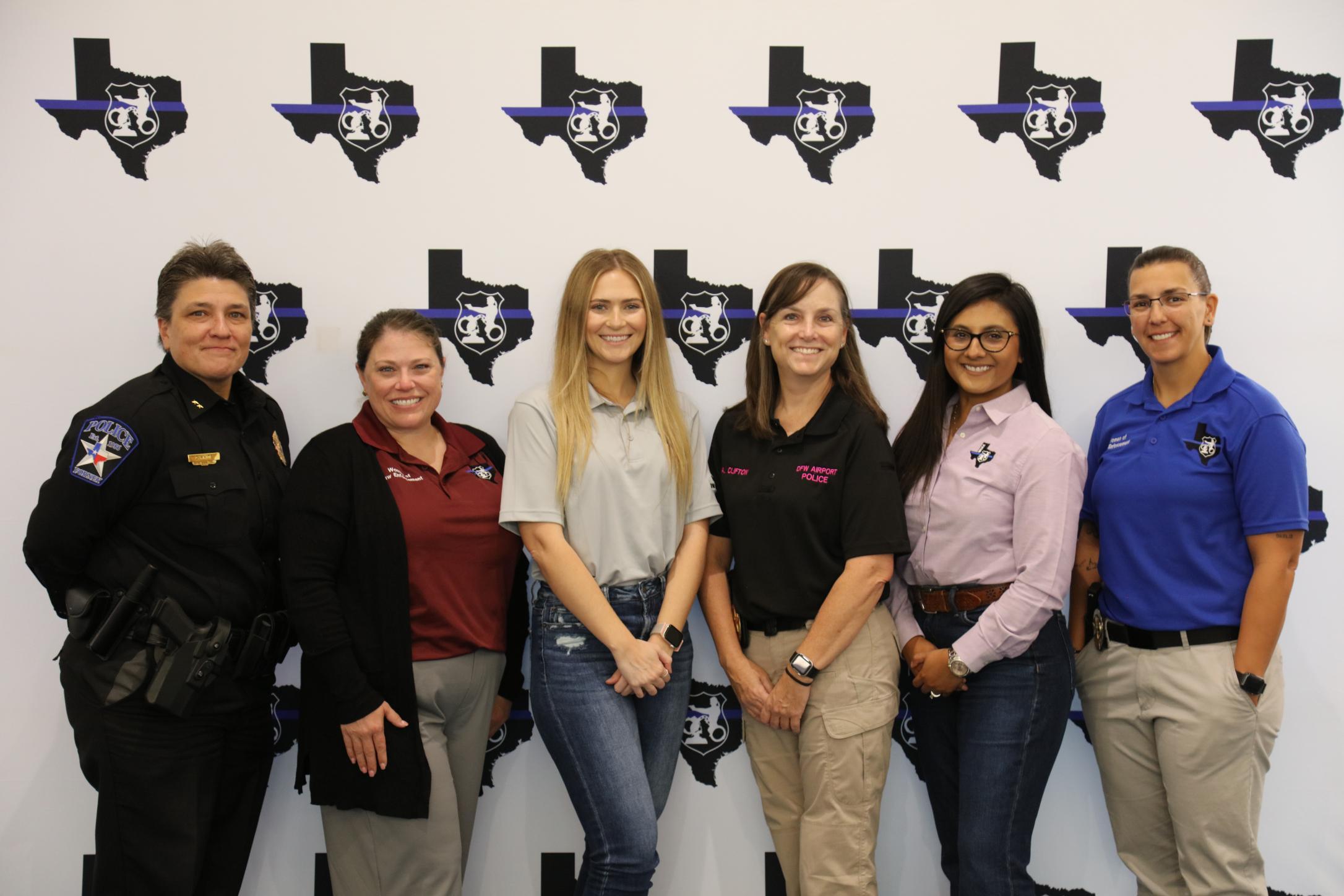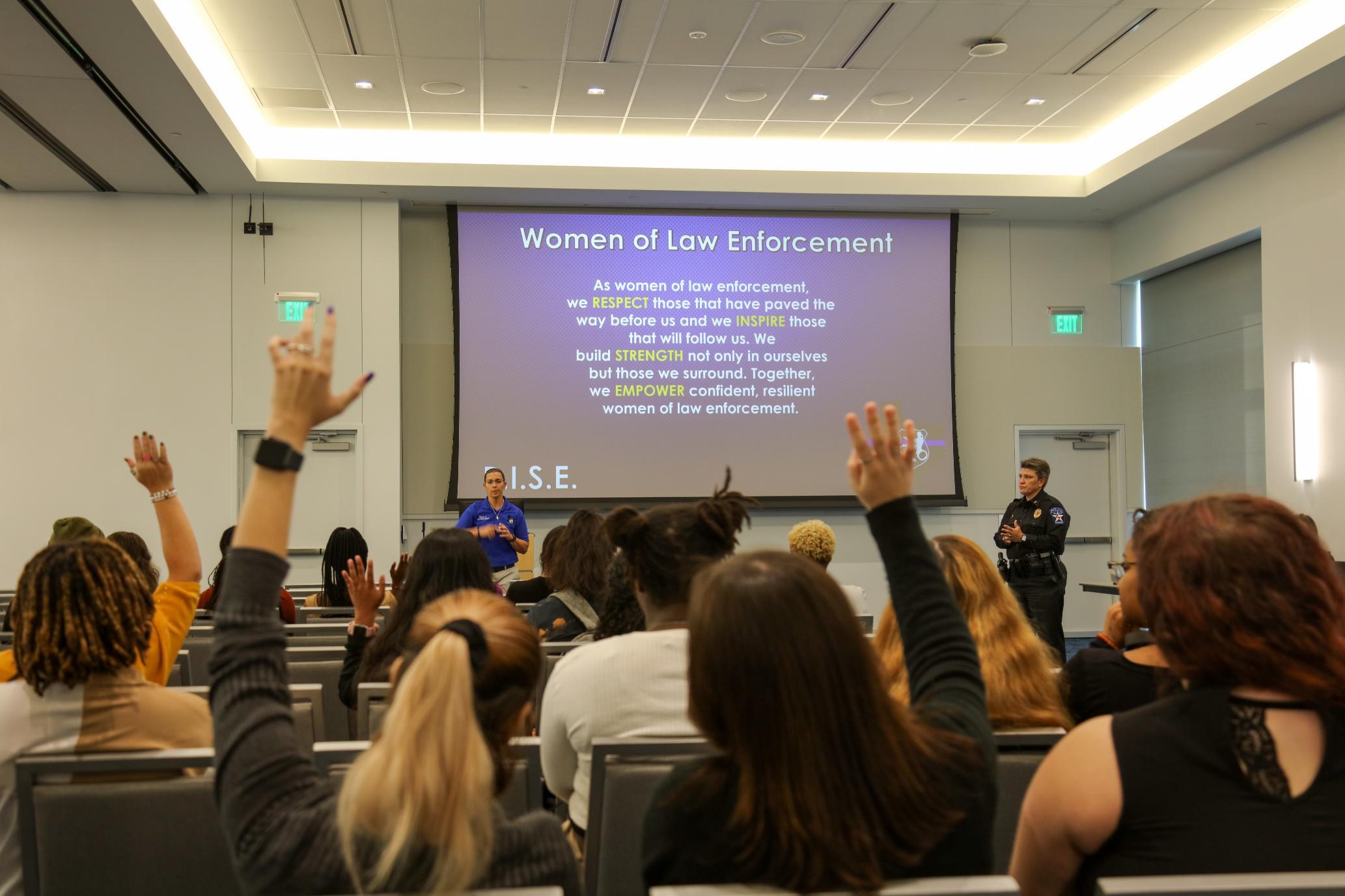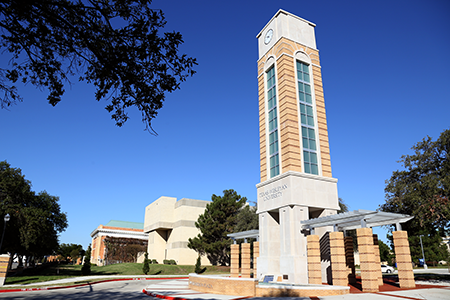Empowered Futures: The Women of Law Enforcement Symposium
-1.png)
As the early morning sunrise streamed through the tall windows of the ballroom at Texas Wesleyan University, a buzz of excitement filled the air. Students, clad in business casual and armed with notebooks, filtered into the room for the Women of Law Enforcement Symposium. Their faces reflected a mix of anticipation and determination, each one on the brink of making crucial decisions about their futures. Some whispered enthusiastically about becoming EMTs, others exchanged glances that hinted at aspirations to wear a badge and create safer communities, while a few pondered the vital role of dispatchers behind the scenes. As they took their seats, with coffees and pens in hand, the energy in the room was palpable, a collective heartbeat of ambition, ready to explore the careers in law enforcement available to them.


Lieutenant Kendra Wilson opened the symposium with introductions and a welcome. “We want to make sure that if this is a career that you are interested in, that we can answer any questions or concerns you might have,” said Wilson.
Inspiring the crowd with her career path, Forney Chief of Police Carrie White shared stories of adventures and what being a woman in a male-dominated field is like. Attendees learned about the recruit-to-chief process, media relations, the technology behind dispatch operations and more.

-187x281.png)
Fort Worth Police Department Officer Hannah Rivard shared her work with non-profits on human trafficking and as an EMT in Tactical Medical (TacMed). Though it can help, you do not have to have a medical background to be a part of the TacMed unit, she shared. "We can go in as police officers to people who are seriously injured and provide medical relief in the hot zone,” said Rivard. There are also state, local and federal positions, positions overseas and police departments that offer TacMed, fire and police positions. Many non-profits work with the police, which is an additional career option.
To start preparing for career with police departments, the speakers recommend ride-outs, researching departments and what they offer, shooting training and women-only classes. Weekly/twice-weekly combative training was recommended by Rivera to prepare for a position with the police department. CrossFit, high rocks, jujitsu and mixed martial arts are also ways to become active and prepare for this line of work.
The two-day event was a successful experience, intriguing students of various majors. One student said, “I am changing my major; I want to work in dispatch.” After the event, many speakers answered questions and shared their contact information with the students so that they could continue to provide support and information about law enforcement fields.

“About 12% of women are in law enforcement,” said White. “There are three percent of female police chiefs, so I recognize we are low in numbers, but I don’t want us to be low in numbers forever, and that is why we are here.”
I am highly interested in pursuing an internship with NRHPD. The low number of women in law enforcement was a bit discouraging, but I saw the way these women broke through that "male-dominated" barrier and gave me a sense of ease. I want my message to be that just because this is a highly male-dominated field does not mean you cannot do it. We can do just as much, if not more than men can do," said student, Elicia Torres.
"It is important for young women to see that they can make a difference, and they also give those of us who are a bit more mature hope that it isn't too late for us either,” said Emily Reeves, Texas Wesleyan student. “It opened my eyes to more career options and gave me the courage to continue my schooling.”
Following the symposium, police departments all across the DFW metroplex were present for recruiting, answering questions and encouraging students to consider their careers.


The stories shared by the accomplished women in law enforcement not only illuminated the challenges they faced but also showed the determination and strength they hold. Each aspiring student present for this event is now armed with insights, connections and an understanding of the importance of law enforcement, especially the women of law enforcement.








